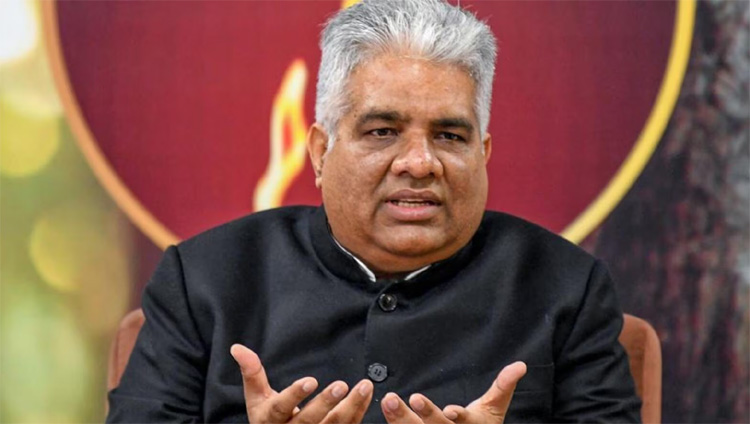India believes access to energy is a right for all citizens: Bhupender Yadav
Union minister for environment, forest and climate change Bhupender Yadav said that everyone in India must have the means to live with dignity and that access to affordable energy is critical in achieving it.
“Young people should work to achieve both sustainable development goals and the Paris Agreement. It’s critical that we address climate change and ensure climate justice also. Everyone in India must have means necessary to live with dignity. We believe access to energy is a right for all citizens and therefore energy must be affordable and green”, he said during his inaugural address at the World Sustainable Development Summit (WSDS) on Wednesday.
“India is shifting towards renewable energy at a fast pace. Between 2017 and 2023, India has added around 100 GW of installed electric capacity of which 80% is from non-fossil fuel-based sources,” Yadav said while adding that India has not only updated its nationally determined contribution (NDC) indicating deep commitment to enhancing climate action.
“We have already met two of our 2015 climate goals. First, reduction of emission intensity of GDP by 33% between 2005 and 2019, achieved 11 years ahead of schedule. Secondly, we have achieved 44% of electric installed capacity through non-fossil fuel sources 9 year prior to the 2030 target,” added Yadav at the summit organised by The Energy and Resources Institute (TERI).
COP29 President, Mukhtar Babayev, minister of Ecology and Natural Resources, Republic of Azerbaijan who addressed WSDS earlier in the day said, “Developing nations need nearly USD 6 trillion by 2030 to combat and adapt to climate change.”
“Our focus is on a clear and actionable roadmap outlining steps to triple energy capacity and double energy efficiency. I am dedicated to securing strong commitment from nations and stakeholders translating ambitious targets into tangible realities,” he added.
“Our decision to host COP29 arises from our strong belief in the power of international collaboration to address complex global issues. We recognize the interconnected nature of climate challenges and firmly believe that by fostering cooperation and dialogue on a global scale we can collectively work out impactful solutions,” Babayev added.
Prof Hoesung Lee, former chair, Intergovernmental Panel on Climate Change (IPCC) spoke on the goal of limiting warming to 1.5°C.
“The Global Stocktake of last year laid bare the stark reality of our insufficient progress in limiting warming to 1.5 degrees Celsius. While the prevalence of gaps in policy, ambition, implementation, finance, and technology is not new, what is truly surprising is the economic opportunity that lies in closing these gaps. Recent studies suggest that taking additional actions could yield a net economic benefit of up to 7% of world GDP by 2015”, he said.
Vice President Jagdeep Dhankhar also shed light on India’s target on becoming carbon neutral by 2070.
“With India targeting to become carbon neutral by 2070 and expanding use of biofuel in its transport sector, this is a right initiative in the same direction. Electric vehicles are receiving a boost like never before. Circular economy is being increasingly stressed on, in the true spirit of sustainability”, he said.

